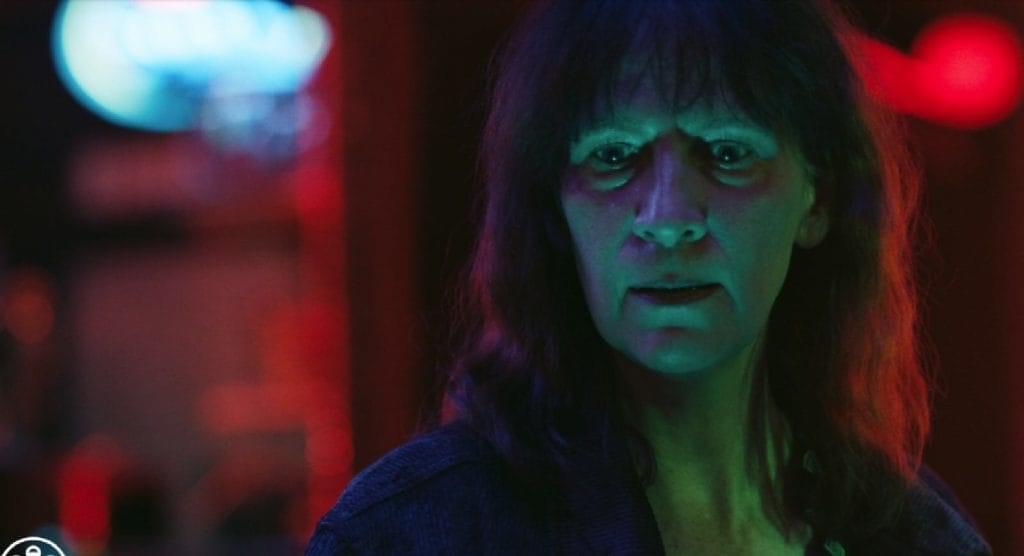
Since “The Twilight Zone” is one of the grandest projects to ever hit television, I’ll give anything that extends its legacy a try. Many great moments of the show came from scripter Richard Matheson, also a novelist/short story writer in his own right, who mastered the use of clever devices to produce plot-driven suspense. This style came to define Sterling’s legendary series, while Matheson fans loathe the author’s teleplays overshadowing his novels, including the genre-exploding vampire yarn I Am Legend (may the Will Smith vehicle, with its Casper-look-alike ghouls, soon die from memory) and The Incredible Shrinking Man.
Writer-director Richard Kelly, who’s become something of a lost soul after his ambitious “Southland Tales” resulted in mostly confusion, looks to redeem himself by adapting Matheson’s short story, “Button, Button” (which appeared in the 1980s “Twilight Zone” series) for his newest film. In doing so Kelly goes for the mainstream with a high-concept premise: a couple gets an offer for huge rewards, with a catch. The reward is one million dollars, should they push a button locked under a glass dome. The catch: that someone they don’t know will die.
The premise sounds like a black joke at Howie Mandel’s expense. Yet, Kelly uses Matheson’s template to fashion an old-fashioned suspenser. With the film’s subtlety and reliance on human choice and action over violence and spectacle, Kelly makes good on his inheritance of a classical form, which he situates circa 1976, when such entertainment had yet to go extinct. Spare as it is, the premise leaves much room for Kelly to let loose his sophomoric Donnie Darko trippiness. It doesn’t quite mist up the proceeds, leaving the strong narrative construction able to pull the film through.
Kelly’s visual style can feel stiff, but here his creeping tracking shots massage the tension. Norma (Cameron Diaz) and Arthus Lewis (James Marsden) are successful yet struggling Virginia professionals – she, a teacher, and he’s a scientist at NASA. Their special deliver comes right when their obstacles rise – he loses a chance at space travel, and she may loose her tuition break for her son. While seeming like Screenwriting 101: How to Enter the Second Act, these pressures end up resurfacing by the end, as early omens at the hands of the misdoers entering the couple’s lives.
The special delivery comes from Arlington Steward, a facially deformed Frank Langella who breathes out words just audible enough for his vocal cords to register them. Smoothly laying out the deal, and coming off as chilling as he is credible, the veteran actor serves up a fine gothic messenger, though his character’s involvement doesn’t stop here.
Matheson’s button is, naturally, a pure descendant of Pandora’s Box. When Norma hits it on impulse, the deal comes through – crisp cash delivered, and a whole mess of problems in tandem. Before the couples makes the choice, bodies in the film aren’t faring too well. Along with Steward’s missing left-jaw, which makes for an uncanny resemblance to a combat victim, Norma is missing toes from a childhood x-ray accident, while sundry people she and Arthur encounter suffer nosebleeds. Seasoned viewers know the latter to be a set-up, as is the well-being of the Steward’s son, who is introduced right when the everyday obstacles start heaping at the beginning. Arthur fully “opens” the box by inquiring too much into the truth about Steward. When the former learns that Steward seems to have an army of what seem to be Pod people, the film recalls the paranoid thriller tradition that was flourishing during the film’s time frame.
Like in the better moments of “Donnie Darko,” Kelly serves up suspense and dread, here through a tension-ready scenario. He seems to have the narrative under control, until he moves into act three by sending his story into a nebulous orbit. Kelly undoubtedly delights in pondering the beyond, but here, as in “Darko,” it goes too far for us to ponder it with him. The revelation of the film’s mystery just barely makes sense. Yet, we dismiss it as an extended MacGuffin, and thus can delight in the film’s devious turns.

